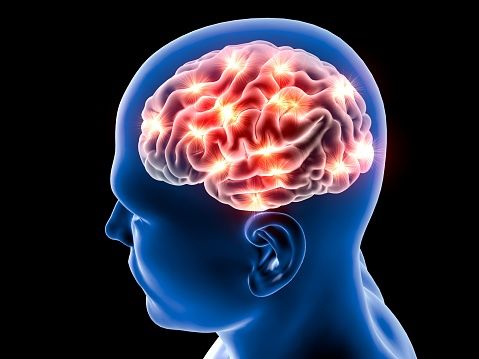Neurological disorders are complex conditions that affect the brain and nervous system, often leading to significant physical and cognitive impairment. Among the most prevalent and challenging of these disorders are Alzheimer’s disease and Parkinson’s disease. Understanding the underlying mechanisms of these conditions is crucial for developing effective treatments and improving the quality of life for those affected.
Alzheimer’s Disease: A Silent Epidemic
Alzheimer’s disease is a progressive neurodegenerative disorder that primarily affects older adults, leading to memory loss, cognitive decline, and ultimately, the inability to perform everyday tasks. It is estimated that over 5 million Americans are living with Alzheimer’s, making it the most common form of dementia.
The exact cause of Alzheimer’s is still not fully understood, but research suggests that a combination of genetic, environmental, and lifestyle factors may play a role. One hallmark feature of Alzheimer’s is the accumulation of abnormal protein deposits in the brain, known as plaques and tangles, which disrupt neuronal communication and lead to cell death.
Early detection and intervention are crucial for managing Alzheimer’s disease, as current treatments focus on symptom management rather than curing the condition. Researchers are actively studying potential new therapies, including drugs that target the underlying pathology of the disease, such as anti-amyloid or tau protein therapies.
Parkinson’s Disease: A Movement Disorder
Parkinson’s disease is a progressive movement disorder that primarily affects the motor system, leading to symptoms such as tremors, stiffness, and difficulty with balance and coordination. It is estimated that over 1 million Americans are living with Parkinson’s, making it the second most common neurodegenerative disorder after Alzheimer’s.
Parkinson’s disease is caused by the degeneration of dopamine-producing neurons in the brain, which results in a lack of dopamine, a neurotransmitter that helps regulate movement. The exact cause of this neuronal degeneration is still not fully understood, but genetic and environmental factors are believed to play a role.
Current treatments for Parkinson’s disease focus on managing symptoms, such as with medications that help replenish dopamine levels or deep brain stimulation therapy that targets specific areas of the brain involved in motor control. Researchers are also exploring new treatment approaches, such as stem cell therapy or gene therapy, to potentially slow or halt the progression of the disease.
Advances in Research and Treatment
Recent advancements in neuroimaging technology, genetic testing, and biomarker discovery have revolutionized our understanding of neurological disorders such as Alzheimer’s and Parkinson’s. These tools allow researchers to study the brain at a molecular level, identify genetic risk factors, and track disease progression in real time.
Collaboration between scientists, clinicians, and pharmaceutical companies is critical for accelerating the development of new treatments for neurological disorders. Clinical trials are underway for promising drugs targeting the underlying pathology of Alzheimer’s and Parkinson’s, as well as innovative therapies that aim to slow disease progression or improve symptoms.
Ultimately, unraveling the mysteries of neurological disorders such as Alzheimer’s and Parkinson’s will require a multi-faceted approach that combines basic research, clinical trials, and personalized medicine. By working together, we can advance our understanding of these complex conditions and develop more effective treatments that improve the quality of life for individuals living with these disorders.
Join us in the fight against neurological disorders and help us unravel the complexities of Alzheimer’s and Parkinson’s. Together, we can make a difference in the lives of millions of individuals and families affected by these devastating conditions.
Conclusion
Neurological disorders are a major public health challenge, affecting millions of individuals worldwide. Alzheimer’s disease and Parkinson’s disease are just two examples of the many complex conditions that impact the brain and nervous system.
By investing in research, promoting early detection, and developing innovative treatments, we can make a positive impact on the lives of those affected by neurological disorders. Together, we can unravel the mysteries of these conditions and pave the way for a brighter future for all.
